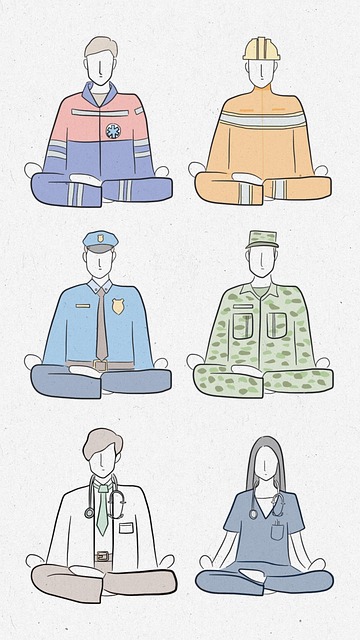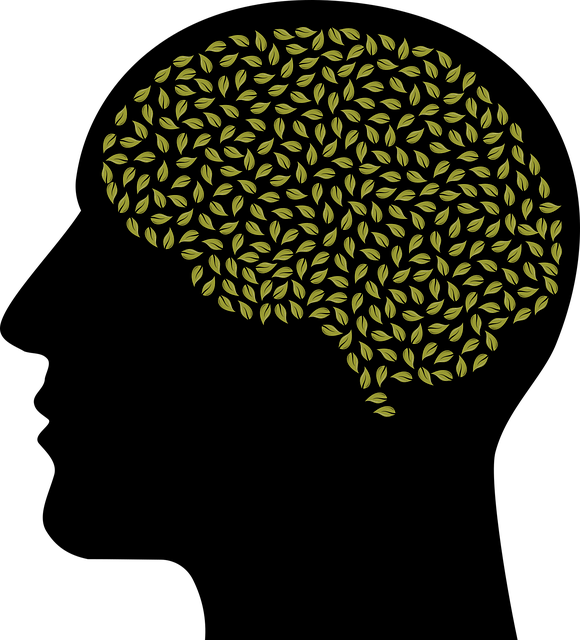In diverse communities like Broomfield, where Broomfield Learning Disability Therapy (BLDT) services are in high demand, cultural competency is crucial for healthcare providers. Understanding and respecting varied cultural beliefs ensures every patient receives respectful, culturally sensitive care. BLDT excels through comprehensive training that adapts communication, addresses biases, and incorporates culturally relevant therapeutic methods. This enhances the patient experience, supports risk management, and aligns with goals valuing unique backgrounds. Effective cross-cultural communication strategies, including active listening, tailored education programs, and mindfulness podcasts, are employed by BLDT to deliver quality care. Continuous learning, evaluation, and reflection ensure culturally competent care that respects every patient's background, enhancing overall mental wellness.
In today’s diverse healthcare landscape, cultural competency is no longer an option but a necessity. Understanding and addressing cultural differences in patient care can significantly enhance quality of life outcomes. This article explores these nuances, highlighting the impact of cultural biases and stereotypes on patient experiences. We present a case study from Broomfield Learning Disability Therapy, showcasing successful cultural sensitivity strategies. Additionally, we offer practical tips for providers to improve cross-cultural communication and emphasize the importance of continuous learning in fostering long-term cultural competence.
- Understanding Cultural Competency in Healthcare: A Necessity for Quality Care
- The Impact of Cultural Biases and Stereotypes on Patient Outcomes
- Broomfield Learning Disability Therapy: A Case Study in Cultural Sensitivity
- Effective Strategies for Providers to Enhance Cross-Cultural Communication
- Continuous Learning and Evaluation: Ensuring Long-Term Cultural Competence
Understanding Cultural Competency in Healthcare: A Necessity for Quality Care

In the realm of healthcare, cultural competency is no longer a nice-to-have, but a necessity for delivering quality care. It involves understanding and respecting diverse cultural beliefs, values, and practices among patients and their families. This is especially critical in diverse communities like Broomfield, where Learning Disability Therapy services are in high demand. Healthcare providers must be equipped to navigate complex situations, ensuring that every patient receives respectful, culturally sensitive care.
Avoiding cultural insensitivity can significantly impact patient outcomes, trust, and satisfaction. It’s akin to a crucible that tests the mettle of mental health professionals. Effective training goes beyond surface-level awareness; it equips practitioners with skills to adapt communication styles, address unconscious biases, and incorporate culturally relevant therapeutic approaches. This not only enhances the patient experience but also supports effective risk management planning for mental health professionals, as it fosters stronger connections and adherence to treatment plans. Initiatives like Mental Wellness Journaling Exercise Guidance and Community Outreach Program Implementation can further enrich cultural competency training, enabling healthcare providers to provide comprehensive care that respects and values every individual’s unique background.
The Impact of Cultural Biases and Stereotypes on Patient Outcomes

Cultural biases and stereotypes can significantly impact patient outcomes in healthcare settings, often leading to disparities in care. These unconscious preconceptions can cause healthcare providers to make assumptions about a patient’s behavior, preferences, or needs based on their race, ethnicity, gender, or other cultural identifiers. For instance, a provider might dismiss a patient’s symptoms or concerns because they hold stereotypes about certain cultural groups’ health-seeking behaviors, leading to misdiagnosis or delayed treatment. This is particularly concerning in diverse communities where individuals with learning disabilities, as exemplified by Broomfield Learning Disability Therapy, may already face unique challenges navigating the healthcare system.
Stereotypes can also influence the therapeutic relationship, affecting trust and communication. Mental Health Policy Analysis and Advocacy highlights that when providers internalize cultural biases, they may inadvertently signal to patients that their experiences and perspectives are not valid or important. This can hinder patients’ willingness to disclose sensitive information, impacting their overall mental health and well-being. Public Awareness Campaigns Development can play a crucial role in countering these biases by educating both healthcare professionals and the public about the potential consequences of cultural stereotypes, fostering more inclusive and empathetic care environments.
Broomfield Learning Disability Therapy: A Case Study in Cultural Sensitivity

Broomfield Learning Disability Therapy (BLDT) stands as a shining example of how healthcare provider cultural competency training can transform patient care. This specialized therapy service, dedicated to individuals with learning disabilities, has pioneered approaches that enhance emotional well-being promotion techniques through culturally sensitive practices. By tailoring their interventions to the unique needs and backgrounds of their clients, BLDT ensures inclusive and effective support.
The therapy center’s success lies in its comprehensive understanding of diverse communities and their specific healthcare needs. Through ongoing training and development, healthcare providers at BLDT have mastered the art of navigating cultural nuances, enabling them to deliver personalized care. Their Public Awareness Campaigns Development initiatives have also played a pivotal role in fostering public understanding and acceptance, breaking down barriers and promoting a more inclusive healthcare environment.
Effective Strategies for Providers to Enhance Cross-Cultural Communication

Effective cross-cultural communication is a cornerstone of quality healthcare delivery. Providers at Broomfield Learning Disability Therapy understand that patients from diverse backgrounds may have unique language, non-verbal cues, and cultural norms that can significantly influence their interactions. To enhance this aspect, several strategic approaches can be implemented. Firstly, training in active listening ensures providers pay full attention to patients’ concerns and questions, encouraging open dialogue. Incorporating mental health education programs design tailored for diverse communities can also foster a deeper understanding of cultural contexts, improving the ability to connect with patients.
Additionally, producing mental wellness podcast series featuring diverse voices can provide continuous learning opportunities beyond traditional training sessions. Mindfulness meditation techniques, often part of these podcasts, can help providers maintain composure and cultural sensitivity during stressful patient interactions. Regular reflections on these experiences further refine communication skills, ensuring a more inclusive healthcare environment.
Continuous Learning and Evaluation: Ensuring Long-Term Cultural Competence

In today’s diverse healthcare landscape, continuous learning and evaluation are vital for maintaining cultural competence among healthcare providers. At Broomfield Learning Disability Therapy, we understand that cultural competency is an ongoing process that requires regular updates and assessments to adapt to evolving societal dynamics. This commitment ensures our team remains equipped to deliver culturally sensitive care to all patients, fostering an inclusive environment that respects and values every individual’s unique background.
Through ongoing training sessions, workshops, and self-reflection practices, healthcare providers can enhance their understanding of diverse cultural perspectives. Incorporating mindfulness meditation and positive thinking techniques into these programs further strengthens the ability to navigate complex interactions with empathy and respect. By evaluating progress regularly, institutions like Broomfield Learning Disability Therapy can identify areas for improvement and tailor educational initiatives to meet the specific needs of their patient population, ultimately enhancing overall mental wellness within the healthcare setting.
Healthcare provider cultural competency training is not just a recommendation, but an essential tool for delivering quality care. As evidenced by Broomfield Learning Disability Therapy’s successful implementation of culturally sensitive practices, continuous education and evaluation are key to enhancing cross-cultural communication. By addressing biases and stereotypes, healthcare professionals can improve patient outcomes and create a more inclusive environment. Through effective strategies outlined in this article, providers can navigate the complexities of diverse cultural backgrounds, ultimately fostering better health outcomes for all.














